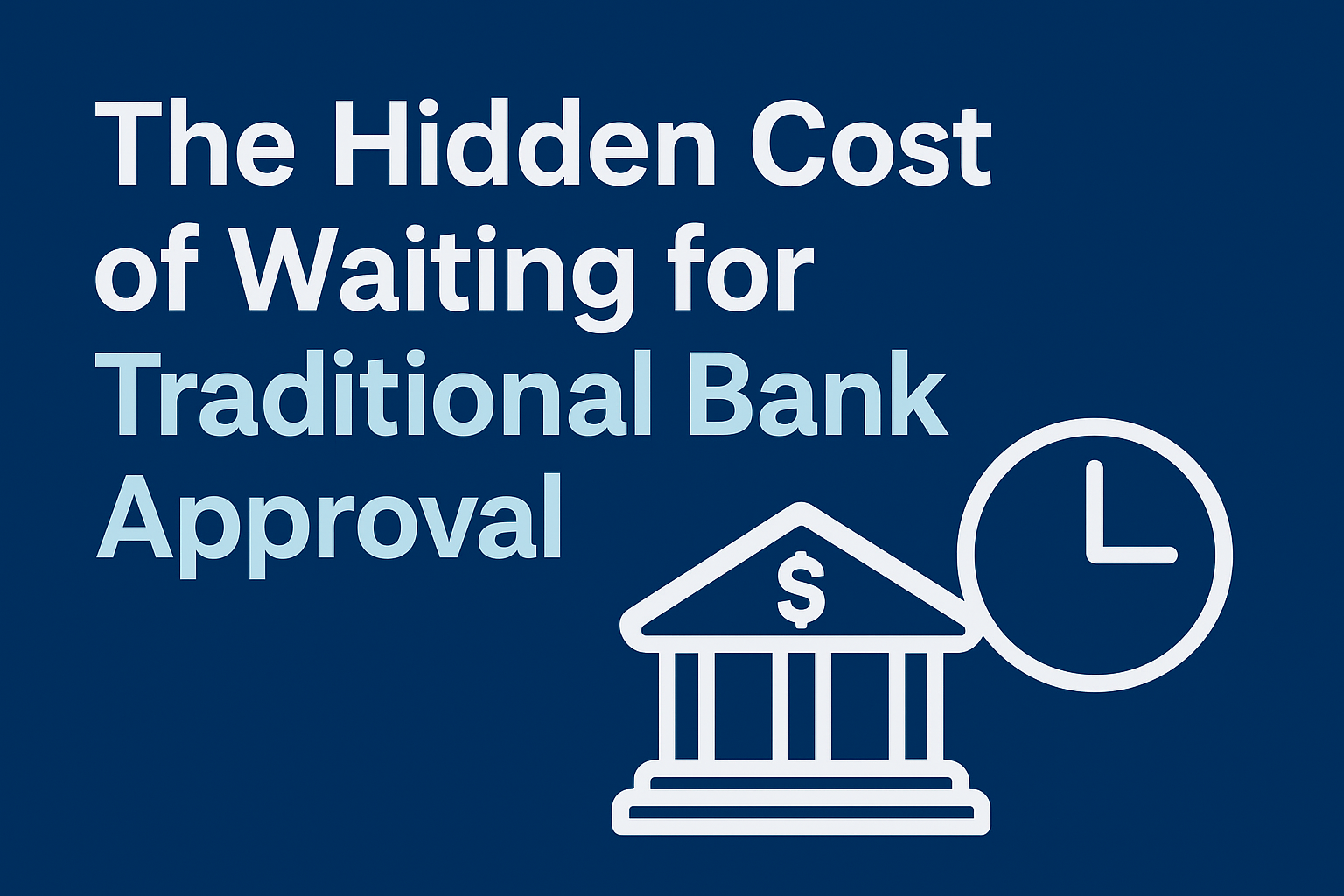
Current Interest Rates for Business Loans in Canada: What Entrepreneurs Need to Know
For many entrepreneurs, the decision to borrow comes down to one key factor: the cost of capital. Interest rates directly affect whether a loan is manageable or becomes a burden. In Canada, those rates are shifting in ways that every business owner should pay attention to.
This article looks at the current lending environment, why rates vary from one borrower to another, and how you can position yourself to secure financing on the best terms possible.
Why Interest Rates Matter
Even a fraction of a percentage point matters when you are borrowing tens or hundreds of thousands of dollars. Over the life of a loan, small differences add up quickly. For business owners, the rate you pay influences cash flow, profitability, and the pace at which you can reinvest in growth.
Borrowing is not just about accessing capital. It’s about ensuring that the cost of that capital supports your business strategy rather than straining it.
The Current Interest Rate Environment in Canada
In Canada, the Bank of Canada’s policy decisions set the tone for borrowing costs, but the rate you receive depends on more than the central bank’s move. Commercial lenders price their loans differently, and each entrepreneur is assessed individually.
- Banks typically fall within the 6% to 10% range for small business loans, with stronger applicants qualifying for the lower end.
- Alternative lenders may begin higher but are often quicker to approve and more flexible in their repayment terms, which is valuable for owners who cannot wait weeks for funding.
For anyone comparing Business Loans in Canada, the important point is that there is no single “standard” rate. Each loan is built around the risk profile and financials of the borrower.
What Shapes Your Interest Rate
Lenders do not arrive at a number by chance. Several elements weigh into their calculation:
- Credit history: Both business and personal scores influence the level of trust a lender has.
- Revenue and cash flow: Stable and predictable income reassures lenders that repayments will be made.
- Collateral: Secured loans generally come with lower rates than unsecured ones.
- Industry risk: Businesses in sectors seen as volatile often pay more, regardless of financial strength.
- Loan structure: Shorter terms can reduce interest costs but increase monthly pressure. Longer terms stretch payments out but usually raise overall costs.
Understanding these factors allows entrepreneurs to prepare and strengthen their position before applying.
Comparing Your Options
When it comes to financing, entrepreneurs typically weigh banks against alternative lenders.
- Banks are appealing for their lower advertised rates but can involve strict documentation, long timelines, and narrow eligibility criteria.
- Alternative lenders may charge slightly higher rates but offer faster decisions, sometimes in just a day, and are open to working with businesses that traditional banks might pass over.
When comparing, it is important not to focus only on the number itself. Fees, repayment flexibility, and speed of access all matter. In practice, a loan with a marginally higher rate but flexible repayment can be a better fit than a rigid loan at a lower rate.
The Role of Timing
Rates do not remain fixed. Each time the Bank of Canada adjusts its benchmark, lenders adjust with it. Borrowing just before a rate increase can secure cheaper capital that saves a business thousands over time. When rates decline, refinancing existing debt may free up cash flow and lower overall costs.
Too often, owners only consider borrowing when an urgent need arises. Those who pay attention to interest rate movements and act with foresight put themselves in a much stronger position to benefit.
Business Loans in Canada: What Entrepreneurs Should Keep in Mind
Every loan is unique. The rate and terms you receive will depend on your financial history, your revenue patterns, the industry you operate in, and whether your financing is secured or unsecured. What matters is not chasing the lowest number on paper but choosing a loan that supports stability and leaves room for growth.
A well-structured loan should provide manageable payments, flexibility to handle fluctuations, and enough breathing room to reinvest profits with confidence.
Closing Point
Interest rates are a central part of any financing decision. They reflect broader economic conditions but also the individual story of each business. Entrepreneurs who understand what shapes these rates, compare their options carefully, and approach borrowing at the right moment are the ones who turn financing into a tool for growth rather than a liability.
At Forward Funding, we make the financing process straightforward for business owners. Our emphasis is on speed, transparency, and flexibility, so you can access capital without delays or unnecessary hurdles. We design funding solutions that work with your cash flow rather than against it, helping you move forward with confidence.
We take pride in building long-term funding relationships, guiding Canadian entrepreneurs through every stage of growth. You can also explore our Google Reviews to see firsthand the level of service and support we consistently deliver.
If you are considering new financing, connect with us to explore options built around your business goals and timelines.



